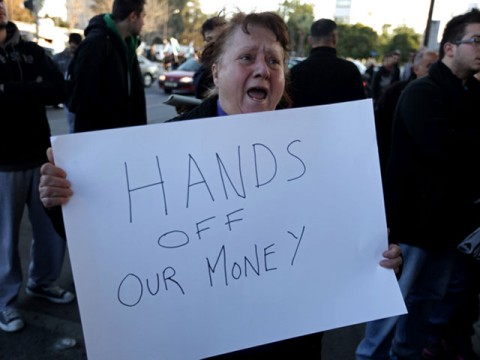Many people in the UK are alarmed at the rate of increase in state debt. We are worried because we fear that we will be responsible for paying the interest and repaying the capital one day. We do not want the state to 0verextend us, at the very time when the private sector has learned an expensive lesson and is reining back on its debts.
We see amongst our European neighbours how a state can overextend its own credit with bad results. The people of Greece have elected successive governments that spent and borrowed too much and followed the wrong economic policies. They reached the point where they told the custodians of the state that they did not feel inclined to pay the bills for past debts. As a result to Greek state reneged on a big portion of its debts.
We now see a similar battle in Cyprus, with the voters telling their representatives there are limits to how much they can put in to pay for past excesses. Elsewhere states renege on their debts in more gentle or devious ways. They cut the value of their currency, reducing the amount of money foreign lenders get back. They inflate their price level, cutting the real value of the money domestic lenders to the state get back. They raise taxes, taking more money off the people who have been lending to the state.
The message from Greece and Cyprus is a harrowing and sobering one. The truth is that the debts incurred by the state are debts that we all collectively owe. If you stay in the country you pay. When it becomes clear a state has borrowed too much and will find it difficult to borrow more, the political choices all become unpleasant. They revolve around one simple issue – how do you share out the pain of paying. In Cyprus savers with deposits have seen the state simply help itself to some of their savings. In Greece the state has helped itself to an ever bigger proprotion of taxpayers’ incomes. In the UK the state is taxing more and more activities in a bid to stave off a worse financial positon born of the level of spending.
